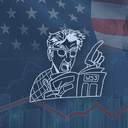In this week’s The Grumpy Economist Weekly Rant, John Cochrane takes on the economics of price controls during natural disasters. When governments freeze prices after hurricanes, fires, or earthquakes, they may prevent “gouging”—but they also shut down the very incentives that bring supply where it’s needed most. Cochrane explains why blocking prices from rising leads to shortages, long lines, and life-or-death situations where people can’t access essentials at any price. Drawing on examples from gas shortages to the 1906 San Francisco earthquake, he shows that flexible prices—not freezes—help communities recover faster. And if policymakers want to help people, he argues, they should give cash, not distort markets.
Transcript
John Cochrane: Hi, I’m John Cochrane, senior fellow here at the Hoover Institution. Welcome to The Grumpy Economist Weekly Rant. Today, I’m going to rant about price controls and, in particular, price controls around natural disasters.
When a hurricane is coming, people run down to Home Depot to get plywood to cover their windows. Price shoots up. After the hurricane, it’s hard to get gas. Price of gas shoots up.
Except it doesn’t, because the government usually imposes price controls. No price gouging, no unfair raising of prices.
After the wildfires in LA, quickly rent controls. No no no no! You can’t charge higher rents to all those people who desperately want to go find a place to live. It seems unfair, but the problem is then you can’t get it at any price.
What happens when the gas stations run out of gas? Or they’re forbidden to charge a higher price, so there’s a long line. You have an ambulance and you want to get to the hospital! You just can’t get gas at any price. Okay, maybe ambulances will get special dispensation.
What if you have a relative across town who just ran out of diapers and there’s no diapers in the store either, and you have some you’d be willing to pay to fill up the gas at 40 bucks a gallon if you had to, to go get your relative some diapers.
No government can ever tell who really needs it and who doesn’t need it.
If there’s a price control on gasoline, somebody who has a gas truck across town or in another state might be tempted to drive in. It’s tough, it’s after a hurricane. Sell the gas at a high price. But if there’s a price control, there’s no supply either. And we all just sit. People who really need it can’t get it. People have no incentive to bring it in. And same for all the other goods.
It doesn’t have to be that way. Let the prices move. In fact, after the 1908 earthquake in San Francisco, 40 percent of the housing stock was destroyed. Milton Friedman and George Stigler wrote about this back in the 1940s. And it’s a lesson that we could still remember.
Forty percent of the housing stock destroyed, you might think there were people out on the streets in tents. No, everybody found a place to live. Why? There was no rent controls. There was no price controls. So, quickly people were willing to pay. And yes, the prices did go up. People who had relatives, maybe out of town or could go live in Berkeley for a few weeks, they went to do that.
People responded by renting out rooms, something that’s also illegal now, so that many houses were full of many more people than they used to be. Throughout the whole time, there were still in the newspapers, houses advertised to rent. You could always find a place to rent. You just had to pay a little more. Now wait. It’s unfair. What about the rich will get all the stuff? The poor will be priced out.
Really now? Even a $40 gallon fill up once in your life isn’t going to be a major change to your entire life savings. The big lesson is don’t transfer income by screwing with prices. If you want to give people income, that’s fine. Give them checks so they can afford the higher prices.
But when you stop prices, then the signals of who should, who should save it, who should use it, who should bring it in, those signals are silenced.
Prices are always an incentive, wrapped in a signal.
So, let the prices move.
If you want to help people with cash, go ahead and help people with cash. And let’s get through these emergencies a little more smoothly than we have in the past.
Thanks for watching. And if you’d like to receive these, don’t forget to click the subscribe button.
John H. Cochrane is the Rose-Marie and Jack Anderson Senior Fellow of the Hoover Institution at Stanford University. An economist specializing in financial economics and macroeconomics, he is the author of The Fiscal Theory of the Price Level. He also authors a popular Substack called The Grumpy Economist.
